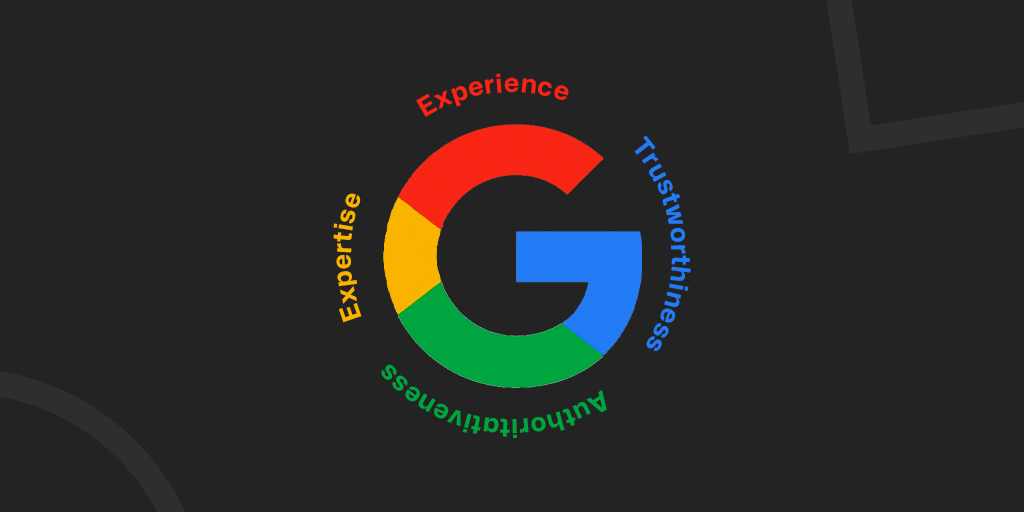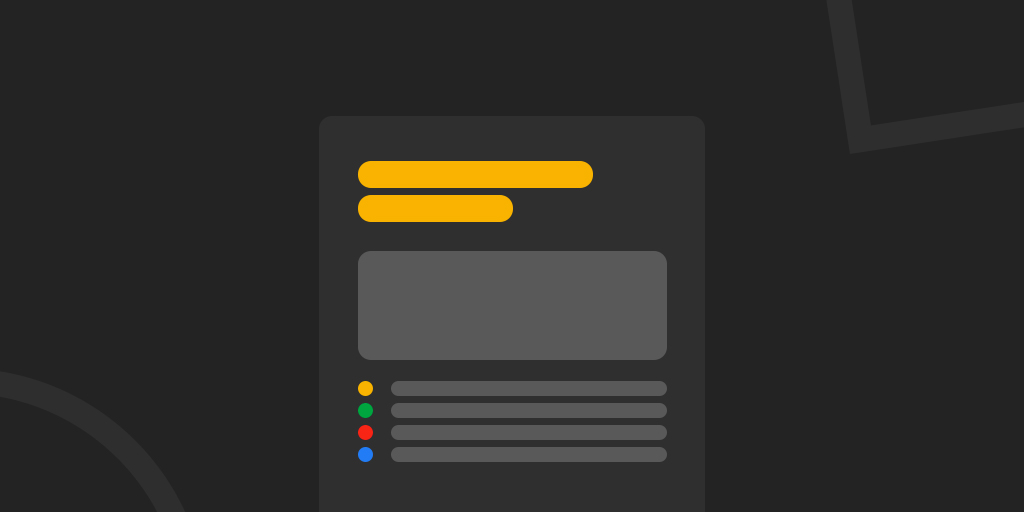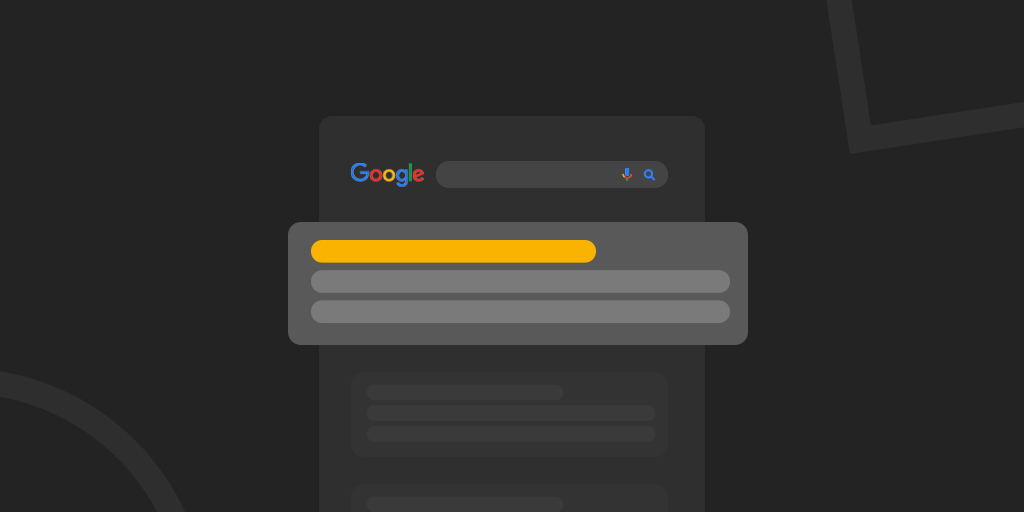A term that has gained significant importance in recent years is E-E-A-T, introduced by Google to assess the quality of web content.
Here, we will decode Google’s E-E-A-T, explaining what it is, why it matters, and how to implement it to boost your website’s SEO performance.
What is E-E-A-T?

As mentioned above, E-E-A-T stands for Experience, Expertise, Authoritativeness, and Trustworthiness. In simple terms, it’s a set of guidelines to help Google determine whether a page provides accurate and valuable information. It ensures digital marketers and content writers create the highest standard of quality possible.
Experience
Experience refers to the competence and skill set of the content creators. Google evaluates the writer’s first-hand or (life) experience relating to the topic when evaluating the material. For instance, a medical article should ideally be authored by a licensed healthcare professional who has demonstrated experience as it is more likely to boost your E-E-A-T score.
Example: In a product review, Google (and audiences) are more likely to trust the opinion of someone who has personally used the product over someone who has not.
Expertise
Expertise is all about demonstrating in-depth knowledge and authority in your field. It’s about showcasing your content as a go-to resource for information. Establishing yourself as an expert in your niche not only improves your rankings but also builds trust with your audience.
Example: A technology blog written by a renowned software engineer will naturally gain more credibility when discussing complex coding topics.
Authority
Authority is determined by your website’s reputation within your industry or niche. Google assesses the quality and quantity of backlinks from authoritative sources. The more reputable websites that link to yours, the more authority you accrue.
Example: A fashion website featured in Vogue or The New York Times will be considered more authoritative than a lesser-known blog.
Trust
Trustworthiness is the foundation of E-E-A-T. Users need to trust your content for it to be valuable. Factors such as site security (HTTPS), accurate citations, and transparent contact information contribute to trustworthiness.
Example: An e-commerce website that uses secure payment gateways and provides clear customer support information is more likely to gain the trust of online shoppers.
How to Write Content with E-E-A-T in Mind
Thorough Research
Start by conducting in-depth research on your topic. Ensure your content is factually accurate and up-to-date. Cite authoritative sources to back up your claims.
Example: If you’re writing about the benefits of a particular diet, include scientific studies and expert opinions to support your content.
Authorship Matters
Google values content created by experts in the field. If you have subject matter experts within your team, encourage them to contribute to your content. Alternatively, you can collaborate with industry influencers.
Example: If you run a financial blog, having a certified financial advisor as a regular contributor adds credibility to your content. Ensuring your blog has author pages could act as a clear signal to Google that this was created by an industry authority.
User-Friendly Content

Ensure your content is easy to read and navigate. Use clear headings, bullet points, and concise paragraphs. This not only aids user experience but also aligns with Google’s preference for user-friendly content.
Example: Break down complex financial concepts into digestible chunks with clear headings and explanatory graphics.
Use Trustworthy Sources
When citing external sources, make sure they are reputable and trustworthy. Avoid using sources with dubious credentials as this can negatively impact your E-E-A-T score.
Example: If you’re writing about health-related topics, rely on information from respected institutions like the World Health Organisation or the NHS.
Show Expertise in Your Niche
Demonstrate your expertise by offering unique insights and solutions that go beyond what’s readily available on the web. This sets you apart as a thought leader in your field.
Example: If you’re in the technology industry, provide in-depth product reviews, comparisons, and troubleshooting guides that others can’t match.
Why Does E-E-A-T Matter?

E-E-A-T matters because it directly affects your website’s visibility in search engine results pages (SERPs). Google’s mission is to provide users with the most relevant and trustworthy information. Websites that demonstrate strong E-E-A-T signals are more likely to rank higher, attract organic traffic, and gain credibility in their respective niches.
How Does Google Measure E-E-A-T in My Content?
Google uses complex algorithms to evaluate E-E-A-T. While the exact details are closely guarded secrets, here’s a simplified overview:
Content Quality Assessment
Google’s algorithms analyse your content’s quality, relevance, and accuracy based on the E-E-A-T framework. They look for keywords, citations, and readability.
Additionally, Google’s preference is expected to tilt further towards “snippets” – ideally, having queries answered without the need to click a link, when a question is asked.
Google will continue to favour E-E-A-T-friendly webpages when questions/queries cannot be addressed in one or two phrases. If you’re writing about fitness, the algorithm might check if your content uses medically accepted terms and if you’ve linked to reputable fitness resources.
User Signals

Google tracks user engagement, such as bounce rate, time on page, and click-through rate. Positive signals suggest that your content satisfies user intent. If users click on your recipe blog and spend time exploring multiple recipes, it indicates your content is engaging and valuable.
Backlink Analysis
Google examines the quality and quantity of backlinks pointing to your content. High-quality backlinks from authoritative websites can boost your E-E-A-T score. If a leading health website links to your health-related article, it signals to Google that your content is trustworthy.
Google Helpful Content Update 2023
Keeping up with Google’s helpful content updates is crucial for digital marketers.
The Google Helpful Content Update is a periodic adjustment of Google’s algorithms to refine the way it evaluates E-E-A-T. The aim is to reward websites that provide genuinely helpful and reliable information. After this update, those with good E-E-A-T scores, will often see a ranking boost.
It’s crucial to consistently deliver high-quality content, engage with your audience, and work on building a solid online reputation.
By following the E-E-A-T guidelines, you’ll not only improve your search rankings but also build trust and credibility with your audience. If you need more help implementing this into your content or understanding SEO, contact us today.